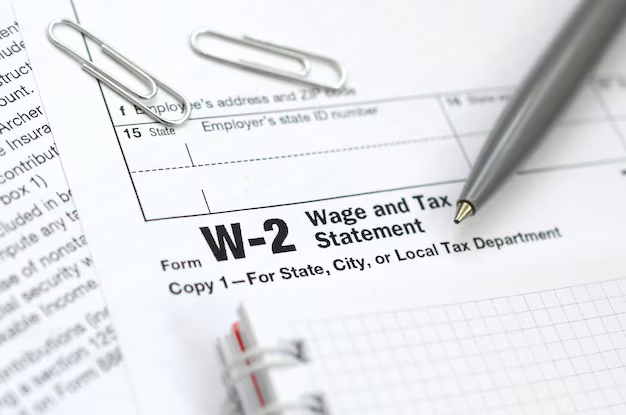Understanding Alabama's Income Tax: What Residents Need to Know
When tax season rolls around, many residents wonder about their state-specific obligations. If you're living in Alabama, you might be asking: Does Alabama have a state income tax? Indeed, Alabama does impose a state income tax, but there's more to the story. Whether you're a new resident or just seeking to better understand your obligations, this guide will explore Alabama's tax system from multiple angles, revealing essential insights you need to know.
Alabama's State Income Tax: The Basics
Alabama imposes state income taxes on both residents and non-residents who earn income within the state. Understanding the basics can help you avoid surprises when it comes time to file.
State Income Tax Rates in Alabama
Alabama's income tax rates are progressive, meaning they increase with higher income levels. As of the most recent tax guidelines:
- 2% on the first $500 of taxable income for single filers (or $1,000 for joint filers)
- 4% on income between $501 and $3,000 for single filers (or $1,001 to $6,000 for joint filers)
- 5% on income over $3,000 for single filers (or over $6,000 for joint filers)
These rates apply to taxable income, which is the amount left after deductions and exemptions are applied.
Personal Exemptions and Deductions
Alabama allows personal exemptions and various deductions to reduce your taxable income. For example:
- Personal exemptions: $1,500 for single or married filing separately, $3,000 for married filing jointly, with an additional $1,500 for each dependent.
- Standard deduction: Ranges from $500 to $7,500, depending on your filing status and income level.
Understanding which exemptions and deductions you qualify for can significantly lower your tax burden.
Understanding Tax Obligations for Residents and Non-Residents
Your residency status plays a crucial role in determining your tax obligations in Alabama.
Residents vs. Non-Residents
- Residents: If Alabama is your permanent home, or if you reside in the state for more than six months of the year, you're considered a resident. You'll need to file a tax return for all income, regardless of where it's earned.
- Non-residents: Those who earn income from Alabama sources but live elsewhere must also file a state return, paying taxes only on income sourced to Alabama.
Filing Your State Tax Return
The process for filing your Alabama state taxes will resemble federal filing, but there are key state-specific considerations.
Navigating Special Tax Credits and Incentives
Alabama offers several tax credits that can lessen your tax liability, providing avenues for savings particularly beneficial to families and businesses.
Key Tax Credits for Residents
Some notable tax credits include:
- Child and Dependent Care Credit: Available to those who qualify for the federal equivalent, this credit provides financial relief to parents and caregivers.
- Adoption Credit: Encourages adoption by offering credits up to $1,000 for associated expenses.
- Historic Rehabilitation Tax Credit: Incentivizes the restoration of historic buildings, offering significant savings to developers and homeowners.
Knowing these options can unlock potential savings and guide financial planning.
Practical Tax Tips for Alabama Residents
Navigating taxes doesn't have to be overwhelming. Consider these practical tips to streamline the process:
- 🗓️ Stay organized: Keep detailed records of income and deductible expenses throughout the year.
- 📄 Understand deadlines: State tax returns are typically due by April 15, mirroring federal deadlines unless they fall on a weekend or holiday.
- 💻 Utilize online tools: Alabama offers e-filing services which can simplify the process and expedite refunds.
- 🔄 Review withholdings: Adjust your paycheck withholdings regularly to avoid end-of-year surprises.
Common Questions About Alabama's State Income Tax
Is Social Security Taxed in Alabama?
Great news for retirees! Social Security benefits are exempt from Alabama state income tax. This retirement-friendly policy can have substantial financial benefits.
How Does Alabama's Tax System Compare Nationally?
While Alabama's top marginal tax rate of 5% is lower than many states, its tax system is considered less progressive compared to states with a more significant gap between the lowest and highest brackets.
Are There County or City Income Taxes?
In addition to state taxes, some cities and counties in Alabama may impose occupational taxes based on earnings. It’s essential to verify local obligations to ensure full compliance.
Summary of Key Tax Insights
Here's a quick snapshot of essential points to keep in mind when dealing with Alabama's state income tax:
- 📊 Progressive Tax Structure: Rates range from 2% to 5% based on income level.
- 🌟 Exemptions & Deductions: Personal exemptions and standard deductions can reduce taxable income.
- 🏡 Residency Matters: Residents pay taxes on global income; non-residents pay on in-state income.
- 💡 Credits Available: Take advantage of credits for dependents, adoptions, and historic rehabilitations.
Final Thoughts: Navigating Your Tax Year in Alabama
Understanding Alabama's tax landscape requires a bit of focus, but it's manageable with the right resources and planning. By keeping informed about rates, exemptions, and special credits, you can minimize your tax liability while meeting your legal obligations. Whether a resident or someone earning income in the state, staying organized and informed is key to a stress-free tax filing experience in Alabama.

Related Topics
- Am I Tax Exempt
- Are 401k Contributions Tax Deductible
- Are 529 Plan Contributions Tax Deductible
- Are Attorney Fees Tax Deductible
- Are Campaign Contributions Tax Deductible
- Are Charitable Donations Tax Deductible
- Are Church Donations Tax Deductible
- Are Churches Tax Exempt
- Are Closing Costs Tax Deductible
- Are Contributions To 529 Plans Tax Deductible
